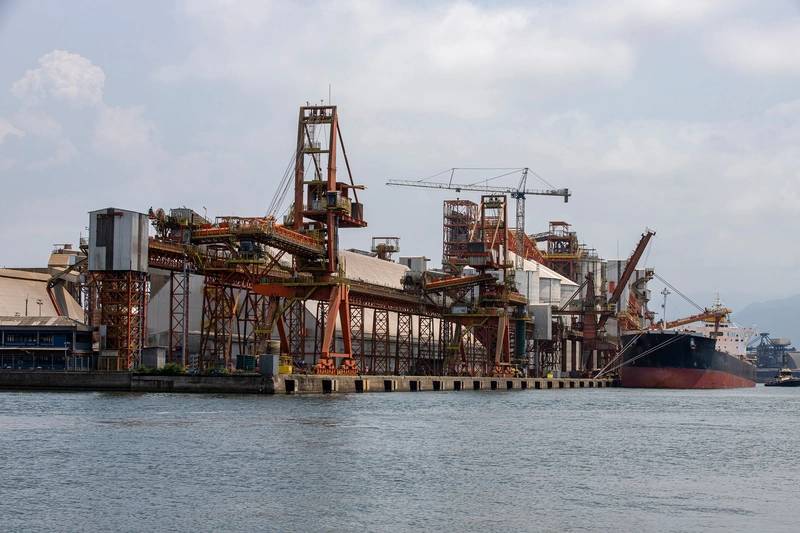Santos Port Anticipates Trade War Boom
Brazil's Santos Port Authority, which administers the largest port in the Southern Hemisphere, said the draft of the port will be deepened to attract larger vessels in coming years.
Speaking at the headquarters of the Santos Trade Association, Beto Mendes, director of port operations, said on Thursday the plan is to deepen the draft to 16 meters and then 17 meters, potentially by 2031.

Attracting larger vessels would allow Brazil to strengthen trade ties with commercial partners such as China, which is currently involved in a trade war with the United States.
"We need to be prepared," Mendes said during a presentation. "Shipping volumes will rise at Santos as a result of President Donald Trump's new trade policies."
Santos shipped 179.8 million tons of products last year, a record. On the sidelines of the event, Mendes said that volume is likely to rise to some 188 million tons in 2025, an estimate that does not factor in the potential growth in trade stemming for the global trade war.
"There is no calculation in relation to that," Mendes told Reuters, adding the U.S. has been changing its tariff policies too frequently to make projections.
Mendes said approximately 60% of everything that is shipped through Santos are agricultural commodities such as soybeans, corn, cotton and pulp.
The state-owned port of Santos handles all types of cargoes, operating in a similar way as European ports, he said. Santos houses 58 terminals and has 16 kilometers of docking piers with 62 berths, Mendes noted.
All Santos terminals are operated by private companies.
(Reuters - Reporting by Ana Mano)
Related News


